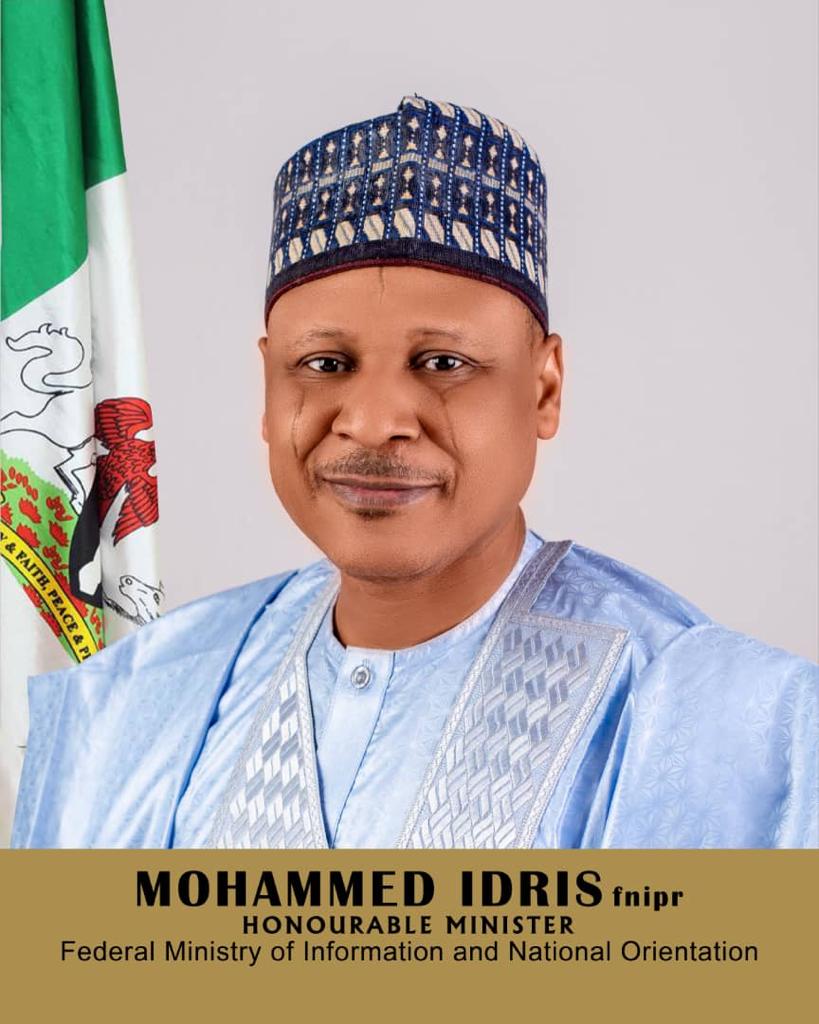
By most accounts, basic education in Nigeria is facing a lot of challenges. These challenges, according to educationists, include inadequate infrastructure, shortage of qualified teachers, paucity of funds and, above all, inadequate instructional materials.
The experts note that the situation has particularly hindered the performance and growth of basic education which, they add, is the foundation of the education system.
This explains the raison d’être behind the educationists’ commendation for President Goodluck Jonathan’s recent decision to introduce a free textbooks distribution programme for public primary and junior secondary schools in the country.
The programme entails the distribution of 14 million textbooks and 4.92 million library resource materials to primary and junior secondary schools nationwide.
Under the programme, pupils in Primary One and Primary Two will receive textbooks for English Language, Mathematics, Social Studies and Basic Science and Technology, while the junior secondary schools are to receive only library resources materials.
In his remarks during the inauguration of the programme, the President urged all stakeholders in the nation’s education sector to support government at all levels in efforts to lay a solid foundation for quality education in the country.
Jonathan, who was represented by Vice-President Namadi Sambo, expressed the Federal Government’s determination to deal with the challenges confronting the country’s education sector.
“All the stakeholders in the book and instructional materials chain, including researchers, who produce the textbooks; pupils and teachers, who utilise these materials; as well as parents, who exercise tremendous influence on the educational process, must understand the inextricable linkage between the three components.
“I, therefore, call on all stakeholders to support government at all levels, to ensure that our education sector, particularly the basic education sub-sector, provides a solid foundation for the attainment of quality education in Nigeria.
“We must do all we can to ensure that textbooks and instructional materials bring added value to our educational process. There is no better opportunity to make this clarion call than this very important event,” he said.
Jonathan explained that the free books distribution exercise was part of the government efforts to encourage stakeholders in the sector to undertake joint efforts to improve the quality of education in the country.
He noted that the procurement and distribution of the books had been an integral part of the Federal Government’s basic education delivery programme.
Jonathan stressed that the government’s goal was to strengthen complementary interventions in the initiation of quality programmes that would pave the way for the achievement of acceptable standards in basic education output.
The President, nonetheless, expressed the hope that the current investment of the government and ongoing structural, institutional and governance reforms in the education sector would reverse the declining quality of education.
Commenting on the programme, Prof Ruqayyatu Rufa’i, the Minister of Education, said that N16.6 billion had so far been spent on the supply of textbooks and library materials to public schools across the country.
She stressed that the distribution of the instructional materials was a component of the government’s four-year strategic plan aimed at improving the quality of education.
Rufa’i, who underscored the importance of instructional materials to the success of the government’s education policy, directed the Universal Basic Education Commission (UBEC) to monitor the distribution and usage of the books.
Besides, Chief Nyesom Wike, the Minister of State for Education, said that the initiative aimed at addressing the scarcity of appropriate textbooks and instructional materials in public primary schools.
He noted that the dearth of textbooks had particularly constituted “a serious impediment to the quality and effectiveness of our education system.
“The textbooks English Language, Mathematics, Social Studies, Basic Science and Technology are for distribution to pupils in all public primary schools.
“Also procured for distribution to junior secondary schools are assorted library resource materials totalling 4.92 million,” he said.
Wike stressed that the distributed textbooks and instructional materials were meant to complement the efforts of state governments in tackling the challenges facing the basic education system.
The minister, nonetheless, urged the private sector to develop a robust book industry in the country to facilitate the fulfilment of the Federal Government’s education policy.
He said that such efforts would enable students at the basic education level to have access to effective learning materials at affordable costs all the time.
“The Federal Government, through the UBEC, would continue to invest and play a leading role, in partnership with stakeholders, to provide and meet the teaching and learning needs of the basic education system,’’ Wike said.
“The ministry will ensure that all learners have sustainable access to relevant textbooks and other learning materials at a ratio of a textbook per pupil,’’ he added.
To add value to its investment, the Federal Government has also inaugurated a 97-member committee to carry out a needs’ assessment survey of all the 104 unity schools in the country.
Inaugurating the committee, Wike said that the exercise became imperative in view of the deplorable state of the schools’ facilities.
He said that the dearth of facilities in the unity schools had provoked serious public concern on the quality of teaching and learning in the schools.
Wike said that apart from insufficient budgetary allocations, several other factors had also contributed to the deterioration of the institutions’ facilities.
He, however, conceded that the impressive increase in students’ enrolment over the years had overstretched the capacity of the facilities of some of the colleges.
“Furthermore, many of the existing buildings and other infrastructure have aged considerably due to lack of maintenance, thereby eliciting concerns about the health, safety and suitability of the teaching and learning environment.
“The poor state of infrastructure in Federal Government Colleges clearly negates the drive and commitments of this administration to providing quality secondary education for Nigerian children.
“We cannot expect optimal performance or achievement from teachers and students who are physically, mentally and psychological harassed by poor educational facilities and unfriendly learning environment.
“Although progress is being made through various targeted interventions, the challenge of addressing the existing infrastructure deficit in Federal Government Colleges, brought about by decades of sustained neglect, is huge,’’ he said.
All the same, Wike underscored the need to adopt a concrete plan of action with lucid implementation strategies, as part of efforts to accomplish the objectives of the government’s education policy.
He stressed that this was one of the most pragmatic ways of addressing the perceptible drawbacks, particularly those relating to the systemic decay of the colleges’ infrastructure.
Wike noted that the needs’ assessment survey of the unity schools entailed the preparation and adoption of a “Physical Infrastructural Development Action Plan and Strategy’’ for each of the 104 colleges.
He enjoined the committee to assess the physical conditions of the schools, the quality and adequacy of existing facilities such as classrooms, libraries, laboratories and technical workshops as well as sporting facilities.
He said that the committee’s terms of reference included ascertaining the number of teachers available for the subjects taught in the colleges and identifying existing gaps in terms of the teacher to student ratio.
Responding, Dr Victor Okene, the committee’s Chairman, said: “We want to assure the minister that we will carry out our duties diligently and we hope that the report will guide the government in planning and policy making.
“We want to have Federal Government Colleges that can be compared with similar institutions elsewhere in the world.’’
Rep. Farouk Lawan, the former Chairman of House of Representatives’ Committee on Education, commendedtheministry for the quality and purpose of its programmes, pledging the legislature’s readiness to partner with the ministry in efforts to achieve the programmes’ goals.
“I must acknowledge that over the last couple of years, the Federal Government has tried to contain the challenges facing our education system in so many ways,” he said.
Lawan said that the problems, which students encountered which acquiring tertiary education, should also be addressed.
“I believe that the challenge is not just for the Federal Government alone; it’s a challenge for all of us in this country,’’ he added.
“I hope the state and local governments will equally commence a programme akin to the books’ distribution project to enable our children to have access to quality learning materials which are so critical to the maintenance of standards in our education system,” he said.
Sharing similar sentiments, Sen. Uche Chukwumerije, the Chairman, Senate Committee on Education, noted that the textbooks’ distribution programme was a major step toward the laying of a strong foundation for the growth of Nigeria’s education system.
He urged UBEC to ensure that the instructional materials got to the end users without any hitches, adding that it would be an embarrassment if some the materials ended up in the markets as wares on sale.
Concerned observers, however, insist that the government must adopt purposeful strategies to boost the quality of the country’s education system which has experienced a lot of decay over the years.
They stress that the poor quality of the basic education system, for instance, has started to take its toll on the students’ performance in external examinations such as NECO and WAEC.
Their concern appears well-founded, as some of the observers note that out of the over 3,000 candidates who sat for the 2004 Common Entrance Examination in Bauchi State, for example, only nine candidates passed with good grades.
They also note that only four, out of the over 8,000 candidates who sat for the 1999 Senior Secondary School Examinations in Bauchi State, scored five credits and above.
Expressing similar worries, Prof Muhammadu Abdullahi of the Department of Science and Technical Education in Bayero University, Kano, said that Nigeria must reform its education system to enable it to achieve the goals of its development agenda.
“This is because education is the major contributor to the economic development of any nation, as it changes the people’s performance,’’ he said when he delivered a lecture at the recent National Conference of Colleges of Education in Katsina.
Saying that the development of any country was hinged on level of its growth in science and technology, Abdullahi stressed the need for the government to reform the country’s education system so as to foster national development in a pragmatic way.
“Our education at this point should aim at reorienting Nigerians to adopt a productive culture rather than a consumption culture by effectively programming our educational system towards science and technology,’’ he said.
Abdullahi urged the government to prescribe the minimum number of subjects which candidates could sit for in Senior Secondary Certificate Examination, while introducing Information and Communication Technology (ICT) into the school curriculum.
By and large, there is a consensus of opinion among stakeholders that parents and guardians should reciprocate government’s gesture by showing more commitment to the education of their children and wards.
“This is the surest way to justify the huge investments of the government on the free books distribution project and other education programmes,’’ some of them say. (NANFeatures)



